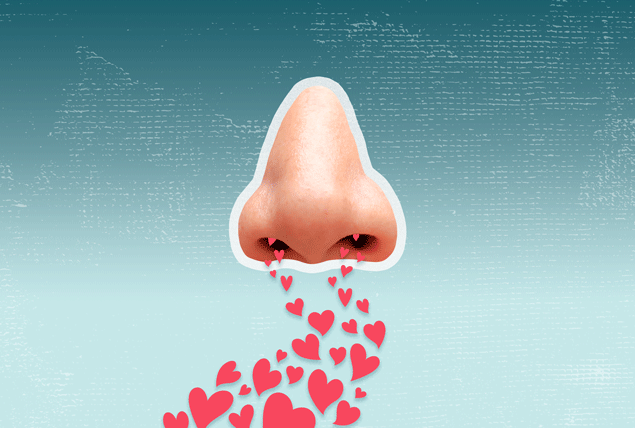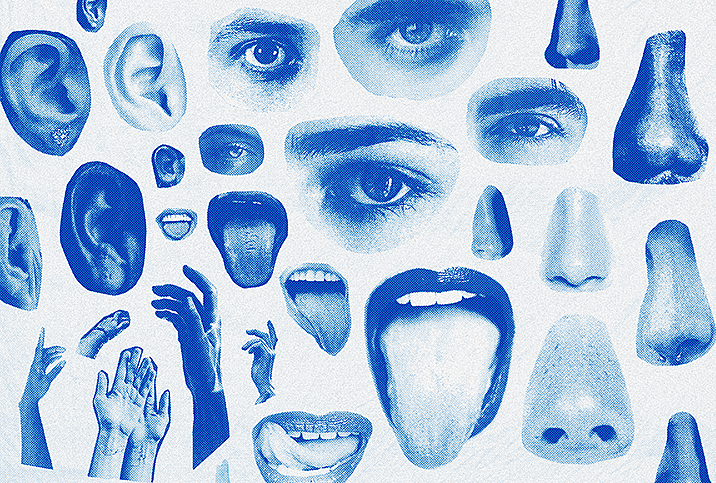Can Losing Your Sense of Smell Impact Your Sex Life?

About 3 percent of the population in the United States has anosmia (a complete loss of smell) or severe hyposmia (a partial loss of smell), according to estimates published by the National Institutes of Health (NIH).
Common symptoms of COVID-19 include a loss of the sense of smell, as many of the 100 million infected Americans experienced some variation of anosmia. While most regained their sense of smell, a 2022 study published in BMJ suggested that 5 percent of people with COVID-19 may experience an enduring loss of smell.
You may think a sense of smell is not as important nowadays as it may have been in prehistoric days, and you'd probably be right, but even in 2023, losing your sense of smell can affect your life in various ways.
For starters, it may be harder to differentiate between various foods and their accompanying scents, which may impact your ability to enjoy an expensive meal in a restaurant. Not to mention, it may be hard to detect spoiled food in the refrigerator or smoke in the event of a fire.
You should also know your sense of smell can impact your sex life.
The science of sex and aromas
Multiple studies have suggested a link between your sense of smell and sexual function.
In a 2019 study published in Physiology & Behavior, 29 percent of the participants with smell disorders reported decreased sexual desire upon losing their sense of smell.
A more recent 2021 study published in the Journal of Sexual Medicine also found a link between decreased olfactory function and decreased sexual motivation, although it is to be noted that the demographic of this study was older men and women.
Men who were born without a sense of smell exhibit a strongly reduced number of sexual relationships, while women who were born without a sense of smell felt less secure about their partner, according to a 2013 study published in Biological Psychology.
Other studies have suggested an association between sensitivity to odors and sexual stimulation, too. A 2018 study published in the Archives of Sexual Behavior found people with a higher sensitivity to odors reported more pleasant sexual activities. Furthermore, women with a higher sensitivity to smells reported a higher frequency of orgasms during intercourse.
What experts say
The loss of the sense of smell and a decrease in a person's sex drive seem to be related to several factors, noted Kendra Capalbo, L.I.C.S.W., a licensed couples therapist based in Massachusetts and founder of Esclusiva Couples Retreats and Concierge Couples Counseling.
"Perhaps the most direct connection is related to the role that chemosignals play in our sex lives," she said. "Chemosignals are the way that we communicate different states via olfactory cues, including sexual arousal."
These signals can spark hormonal changes that impact desire in potential partners.
"The loss of one's sense of smell means these cues are not transmitted," she added. "This process is one of those below-the-surface, subconscious ones. So it isn't much about a man not being able to smell a woman's perfume, it is about not being able to pick up on the scents, many undetectable, that suggest a woman is aroused, thus, triggering his own sexual desire."
Loss of smell also can be associated with depression, which can consequently lead to a decrease in sexual motivation, Capalbo explained.
A 2009 study published in the Journal of Sexual Medicine suggested the loss of olfactory dysfunction didn't directly impact sexual motivation. Instead, it was the subsequent depression caused by an olfactory loss that was the main cause of decreased sexual motivation.
Losing your sense of smell can impact your emotional connection with your partner.
"Many of us associate certain scents with our partners and memories, and when this sense is impaired, it can be difficult to recall certain positive memories," explained Melissa Stone, a London-based sex and relationship expert for Joy Love Dolls. "This can lead to an emotional disconnect and frustration, which can lead to a decrease in sexual desire."
In addition, without the ability to smell, food and drinks may taste bland, which can lead to a decreased interest in eating and drinking. Without enough food or hydration, energy levels decrease and that could contribute to lower libido.
What to do if your loss of smell is affecting your sex life
It's important to first consult a healthcare practitioner so they can properly assess whether and how your loss of smell is impacting your sex drive or sexual function.
Temporary loss of smell may be resolvable and associated with other conditions such as colds, allergies or sinus infections. If depression is present, addressing that problem first may help to solve the problem.
"If it doesn't, remember that this is only one factor involved in sex drive, and refocus attention on some of the other factors that can impact it, such as increased foreplay," Capalbo advised.
Stone suggested you attempt to explore sensory play with your partner through other senses, such as hearing, touch and sight.
There are several ways you can do this exploration. Massages, for instance, are a very simple way to explore different sensations such as light touches, deep pressure and tickling during foreplay.
"If you want to try something more exciting, I would recommend experimenting with different temperatures as that can create a variety of sensations, whether hot or cold," Stone explained.
An ice cube is an easy and effective way that can be used by tracing over your partner's body and teasing their most sensitive parts. You could try using a hot-water bottle to warm up areas of your body before exploring them or even a hot shower to intensify arousal, she added.
Ultimately, you should not let your loss of the sense of smell affect your sex life. Instead, focus on finding new ways to explore other senses and incorporate them into your sex life. And if you and your partner are struggling, consulting a sex therapist can help.


















